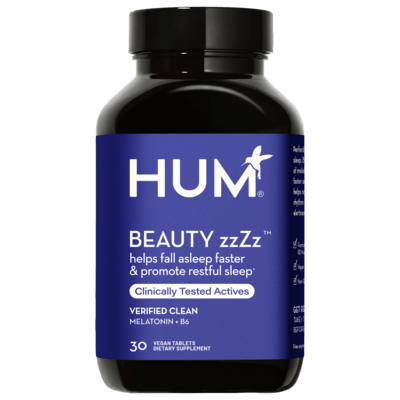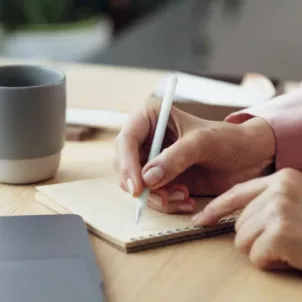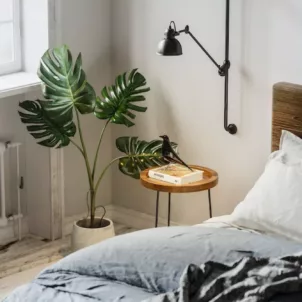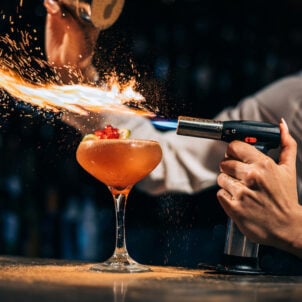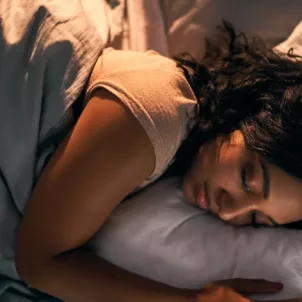Alcohol is messing with your zzz’s.
In vino veritas. In wine, truth. See also: In wine, sleepiness.
People have been consuming alcohol for thousands of years. In ancient times, people drank it instead of water, as the water they had access to was dangerous to drink. Philosophers like Plato praised moderate wine drinking for its health and happiness benefits. Modern-day science corroborates these claims, saying it can lower your risk of heart disease, decrease your risk of developing dementia, and help you be more creative.
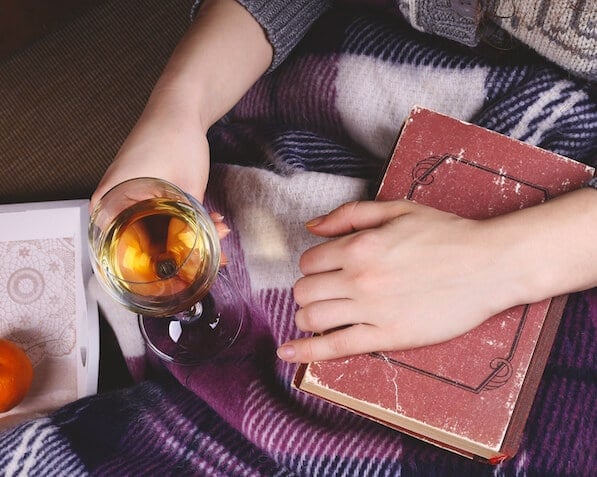 While a nightcap before bed may make you feel relaxed and sleepy, unfortunately, it’s an insidious disruptor to your sleep. When your sleep is F’ed up, you’ll spend the next day feeling less alert and moodier. Over time, sleep disruption can lead to depression, obesity, and a lower sex drive. (Read: alcohol and sleep don’t mix.) Plus, a lack of sleep contributes to premature aging, in part because it’s linked to an increase in cortisol. Cortisol is a stress hormone that can, among other things, break down collagen.
While a nightcap before bed may make you feel relaxed and sleepy, unfortunately, it’s an insidious disruptor to your sleep. When your sleep is F’ed up, you’ll spend the next day feeling less alert and moodier. Over time, sleep disruption can lead to depression, obesity, and a lower sex drive. (Read: alcohol and sleep don’t mix.) Plus, a lack of sleep contributes to premature aging, in part because it’s linked to an increase in cortisol. Cortisol is a stress hormone that can, among other things, break down collagen.
 Before you can understand why alcohol interferes with your sleep, it’s important to know the basics behind your sleep cycle. The average sleep cycle lasts for 90 minutes. During this time, you’ll go through five stages of sleep. Stages one and two are considered light sleep. The third and fourth stages, or slow-wave sleep, occur 35-to-45 minutes after you fall asleep.
The final stage, REM (rapid eye movement), is the sleep stage in which you dream. REM sleep is especially important for storing memories, learning, and your mood. Good sleep is critical to your overall health, because it’s when your body repairs itself and logs, categorizes, and processes information from the day before.
Now, let’s look at your sleep cycle on alcohol. A small amount of alcohol actually helps you fall asleep faster and sleep more deeply—at least for the first part of the night. But overall, it reduces the amount of time you spend in REM sleep.
According to a review of 153 studies on alcohol and sleep, you’ll fall asleep between four to 16 minutes sooner than normal. But—not so fun fact—your heart rate will remain elevated throughout the night. Read: Your nervous system is much more active than it should be.
As the alcohol starts to wear off, your REM sleep “rebounds.” This rebound causes you to wake up frequently. (If you’ve ever wondered why the heck you woke up at five a.m. after a late night of imbibing, here’s why).
If you’re a woman, things get even worse. A 2011 study found that women woke up more frequently and got less sleep than men after drinking before bed, likely because women metabolize alcohol faster.
Translation: When you wake up, you won’t feel great. You’ll be less alert and less able to concentrate because you didn’t get enough REM sleep, which definitely doesn’t make for a fun day at the office.
Before you can understand why alcohol interferes with your sleep, it’s important to know the basics behind your sleep cycle. The average sleep cycle lasts for 90 minutes. During this time, you’ll go through five stages of sleep. Stages one and two are considered light sleep. The third and fourth stages, or slow-wave sleep, occur 35-to-45 minutes after you fall asleep.
The final stage, REM (rapid eye movement), is the sleep stage in which you dream. REM sleep is especially important for storing memories, learning, and your mood. Good sleep is critical to your overall health, because it’s when your body repairs itself and logs, categorizes, and processes information from the day before.
Now, let’s look at your sleep cycle on alcohol. A small amount of alcohol actually helps you fall asleep faster and sleep more deeply—at least for the first part of the night. But overall, it reduces the amount of time you spend in REM sleep.
According to a review of 153 studies on alcohol and sleep, you’ll fall asleep between four to 16 minutes sooner than normal. But—not so fun fact—your heart rate will remain elevated throughout the night. Read: Your nervous system is much more active than it should be.
As the alcohol starts to wear off, your REM sleep “rebounds.” This rebound causes you to wake up frequently. (If you’ve ever wondered why the heck you woke up at five a.m. after a late night of imbibing, here’s why).
If you’re a woman, things get even worse. A 2011 study found that women woke up more frequently and got less sleep than men after drinking before bed, likely because women metabolize alcohol faster.
Translation: When you wake up, you won’t feel great. You’ll be less alert and less able to concentrate because you didn’t get enough REM sleep, which definitely doesn’t make for a fun day at the office.
 Now, we’re not saying that you should never have wine before bed. (We’re not monsters, after all). The occasional nightcap won’t make you feel great in the morning, but it likely won’t be too disruptive to your overall sleep habits. (Tip: Just stay away from bourbon; one study found that people experienced more severe hangovers after drinking bourbon versus vodka.) Serious issues like obesity, heart disease, and depression can arise when sleep is continually disrupted.
If you’re going to imbibe, there are a couple of things you can do to help out your sleep cycle. Try to stop drinking three to four hours before you go to bed. Before you drink, eat a meal containing protein and B vitamins; this combo helps your body process alcohol. Our recommendation: salmon with roasted broccoli and parsley.
Next, take your probiotics like HUM’s Gut Instinct. One study found that bifidobacerium bifidum and lactobacillus plantarum can help reduce liver inflammation brought on by alcohol exposure. Because alcohol upsets your gut flora, probiotics are also helpful to relieve some of the digestive symptoms of drinking.
If you want to get a better night of sleep, skip the nightcap and try one of these tips instead.
Now, we’re not saying that you should never have wine before bed. (We’re not monsters, after all). The occasional nightcap won’t make you feel great in the morning, but it likely won’t be too disruptive to your overall sleep habits. (Tip: Just stay away from bourbon; one study found that people experienced more severe hangovers after drinking bourbon versus vodka.) Serious issues like obesity, heart disease, and depression can arise when sleep is continually disrupted.
If you’re going to imbibe, there are a couple of things you can do to help out your sleep cycle. Try to stop drinking three to four hours before you go to bed. Before you drink, eat a meal containing protein and B vitamins; this combo helps your body process alcohol. Our recommendation: salmon with roasted broccoli and parsley.
Next, take your probiotics like HUM’s Gut Instinct. One study found that bifidobacerium bifidum and lactobacillus plantarum can help reduce liver inflammation brought on by alcohol exposure. Because alcohol upsets your gut flora, probiotics are also helpful to relieve some of the digestive symptoms of drinking.
If you want to get a better night of sleep, skip the nightcap and try one of these tips instead.
The Relationship Between Alcohol and Sleep
 While a nightcap before bed may make you feel relaxed and sleepy, unfortunately, it’s an insidious disruptor to your sleep. When your sleep is F’ed up, you’ll spend the next day feeling less alert and moodier. Over time, sleep disruption can lead to depression, obesity, and a lower sex drive. (Read: alcohol and sleep don’t mix.) Plus, a lack of sleep contributes to premature aging, in part because it’s linked to an increase in cortisol. Cortisol is a stress hormone that can, among other things, break down collagen.
While a nightcap before bed may make you feel relaxed and sleepy, unfortunately, it’s an insidious disruptor to your sleep. When your sleep is F’ed up, you’ll spend the next day feeling less alert and moodier. Over time, sleep disruption can lead to depression, obesity, and a lower sex drive. (Read: alcohol and sleep don’t mix.) Plus, a lack of sleep contributes to premature aging, in part because it’s linked to an increase in cortisol. Cortisol is a stress hormone that can, among other things, break down collagen.
Your Sleep Cycle
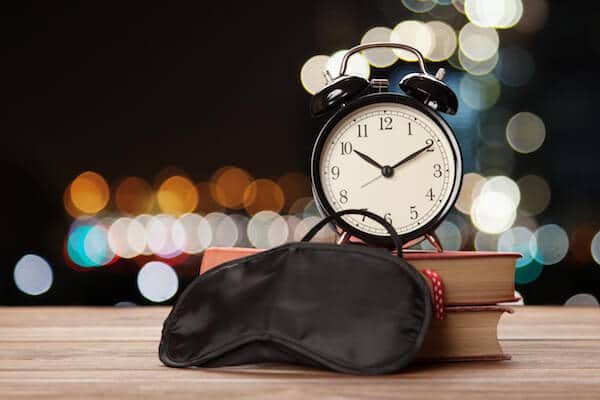 Before you can understand why alcohol interferes with your sleep, it’s important to know the basics behind your sleep cycle. The average sleep cycle lasts for 90 minutes. During this time, you’ll go through five stages of sleep. Stages one and two are considered light sleep. The third and fourth stages, or slow-wave sleep, occur 35-to-45 minutes after you fall asleep.
The final stage, REM (rapid eye movement), is the sleep stage in which you dream. REM sleep is especially important for storing memories, learning, and your mood. Good sleep is critical to your overall health, because it’s when your body repairs itself and logs, categorizes, and processes information from the day before.
Now, let’s look at your sleep cycle on alcohol. A small amount of alcohol actually helps you fall asleep faster and sleep more deeply—at least for the first part of the night. But overall, it reduces the amount of time you spend in REM sleep.
According to a review of 153 studies on alcohol and sleep, you’ll fall asleep between four to 16 minutes sooner than normal. But—not so fun fact—your heart rate will remain elevated throughout the night. Read: Your nervous system is much more active than it should be.
As the alcohol starts to wear off, your REM sleep “rebounds.” This rebound causes you to wake up frequently. (If you’ve ever wondered why the heck you woke up at five a.m. after a late night of imbibing, here’s why).
If you’re a woman, things get even worse. A 2011 study found that women woke up more frequently and got less sleep than men after drinking before bed, likely because women metabolize alcohol faster.
Translation: When you wake up, you won’t feel great. You’ll be less alert and less able to concentrate because you didn’t get enough REM sleep, which definitely doesn’t make for a fun day at the office.
Before you can understand why alcohol interferes with your sleep, it’s important to know the basics behind your sleep cycle. The average sleep cycle lasts for 90 minutes. During this time, you’ll go through five stages of sleep. Stages one and two are considered light sleep. The third and fourth stages, or slow-wave sleep, occur 35-to-45 minutes after you fall asleep.
The final stage, REM (rapid eye movement), is the sleep stage in which you dream. REM sleep is especially important for storing memories, learning, and your mood. Good sleep is critical to your overall health, because it’s when your body repairs itself and logs, categorizes, and processes information from the day before.
Now, let’s look at your sleep cycle on alcohol. A small amount of alcohol actually helps you fall asleep faster and sleep more deeply—at least for the first part of the night. But overall, it reduces the amount of time you spend in REM sleep.
According to a review of 153 studies on alcohol and sleep, you’ll fall asleep between four to 16 minutes sooner than normal. But—not so fun fact—your heart rate will remain elevated throughout the night. Read: Your nervous system is much more active than it should be.
As the alcohol starts to wear off, your REM sleep “rebounds.” This rebound causes you to wake up frequently. (If you’ve ever wondered why the heck you woke up at five a.m. after a late night of imbibing, here’s why).
If you’re a woman, things get even worse. A 2011 study found that women woke up more frequently and got less sleep than men after drinking before bed, likely because women metabolize alcohol faster.
Translation: When you wake up, you won’t feel great. You’ll be less alert and less able to concentrate because you didn’t get enough REM sleep, which definitely doesn’t make for a fun day at the office.
What to Do If You Have a Drink (or Two)
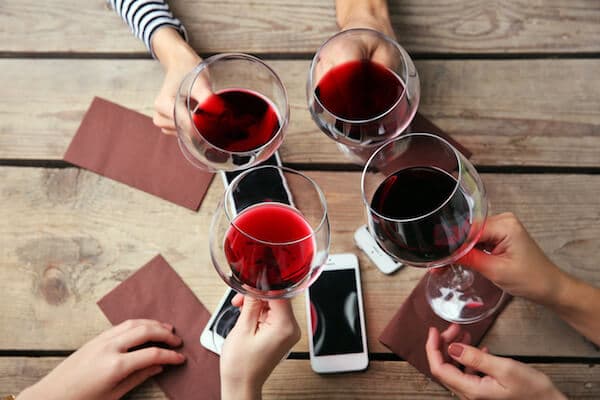 Now, we’re not saying that you should never have wine before bed. (We’re not monsters, after all). The occasional nightcap won’t make you feel great in the morning, but it likely won’t be too disruptive to your overall sleep habits. (Tip: Just stay away from bourbon; one study found that people experienced more severe hangovers after drinking bourbon versus vodka.) Serious issues like obesity, heart disease, and depression can arise when sleep is continually disrupted.
If you’re going to imbibe, there are a couple of things you can do to help out your sleep cycle. Try to stop drinking three to four hours before you go to bed. Before you drink, eat a meal containing protein and B vitamins; this combo helps your body process alcohol. Our recommendation: salmon with roasted broccoli and parsley.
Next, take your probiotics like HUM’s Gut Instinct. One study found that bifidobacerium bifidum and lactobacillus plantarum can help reduce liver inflammation brought on by alcohol exposure. Because alcohol upsets your gut flora, probiotics are also helpful to relieve some of the digestive symptoms of drinking.
If you want to get a better night of sleep, skip the nightcap and try one of these tips instead.
Now, we’re not saying that you should never have wine before bed. (We’re not monsters, after all). The occasional nightcap won’t make you feel great in the morning, but it likely won’t be too disruptive to your overall sleep habits. (Tip: Just stay away from bourbon; one study found that people experienced more severe hangovers after drinking bourbon versus vodka.) Serious issues like obesity, heart disease, and depression can arise when sleep is continually disrupted.
If you’re going to imbibe, there are a couple of things you can do to help out your sleep cycle. Try to stop drinking three to four hours before you go to bed. Before you drink, eat a meal containing protein and B vitamins; this combo helps your body process alcohol. Our recommendation: salmon with roasted broccoli and parsley.
Next, take your probiotics like HUM’s Gut Instinct. One study found that bifidobacerium bifidum and lactobacillus plantarum can help reduce liver inflammation brought on by alcohol exposure. Because alcohol upsets your gut flora, probiotics are also helpful to relieve some of the digestive symptoms of drinking.
If you want to get a better night of sleep, skip the nightcap and try one of these tips instead.
More like this
